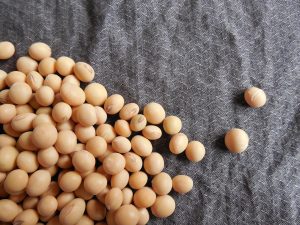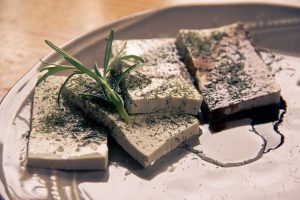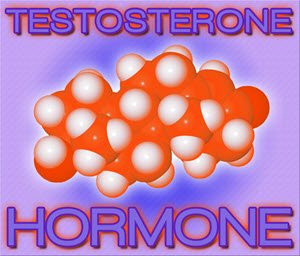 "Soy boy" is a term that originated in online communities and has gained popularity on social media and in popular culture. The term is often used to describe men who are perceived as weak, effeminate, or lacking in traditional masculine qualities. The origin of the term is uncertain, but it is believed to have originated from the idea that consuming soy products can have a feminizing effect on men, leading to a decrease in testosterone levels and other masculinizing hormones.
"Soy boy" is a term that originated in online communities and has gained popularity on social media and in popular culture. The term is often used to describe men who are perceived as weak, effeminate, or lacking in traditional masculine qualities. The origin of the term is uncertain, but it is believed to have originated from the idea that consuming soy products can have a feminizing effect on men, leading to a decrease in testosterone levels and other masculinizing hormones.
However, there is little scientific evidence to support this claim, and many health experts dispute the notion that soy products have a significant effect on hormonal balance in men. A number of studies have been conducted to examine the relationship between soy consumption and testosterone levels, with varying results. Most studies have found no such impact, while a few have found a tiny and insignificant reduction in testosterone levels. Even in these latter studies, the level changes are extremely unlikely to lead to a significant change in physical or behavioral characteristics. Cultures in which soy is a major part of their diet tend to have excellent fertility in both sexes, and high birth rates.
 The validity of the "soy boy" label is highly questionable, with the most well-informed people viewing it as a harmful and baseless insult. Others persist in seeing it as a legitimate observation about changes in societal norms and values. Ultimately, the effects of soy consumption on hormonal balance and masculinity are complex and poorly understood, and much more research is needed to fully understand the relationship between soy and masculinizing hormones. What we do know for certain is that the changes, if there really are any (and most studies say there aren’t), are tiny and insignificant and have zero feminizing effect.
The validity of the "soy boy" label is highly questionable, with the most well-informed people viewing it as a harmful and baseless insult. Others persist in seeing it as a legitimate observation about changes in societal norms and values. Ultimately, the effects of soy consumption on hormonal balance and masculinity are complex and poorly understood, and much more research is needed to fully understand the relationship between soy and masculinizing hormones. What we do know for certain is that the changes, if there really are any (and most studies say there aren’t), are tiny and insignificant and have zero feminizing effect.
While the term "soy boy" is a controversial and often divisive topic and ever-spreading Internet meme, remember that memes are not facts, and the evidence suggests that there is little merit to the idea that consuming soy products has any feminizing effect on men. The relationship between soy and masculinizing hormones is complex and requires further research, but for now, the best advice for men is to focus on eating a balanced and healthy diet, regardless of whether or not it includes soy products.
 The debate over soy products and its impact on male hormones has been a topic of discussion for years. While popular culture and social media often portray soy as feminizing for men, the science says otherwise. Let’s examine three studies to determine the truth about soy and its effect on men's hormones.
The debate over soy products and its impact on male hormones has been a topic of discussion for years. While popular culture and social media often portray soy as feminizing for men, the science says otherwise. Let’s examine three studies to determine the truth about soy and its effect on men's hormones.
A study on The Effect of Soy Protein Supplementation on Serum Testosterone and Estradiol Concentrations in Healthy Men: A Systematic Review and Meta-Analysis found that soy protein supplementation had no significant effect on serum testosterone concentrations in healthy men. However, there was a small but statistically significant decrease in estradiol concentrations, a type of estrogen.
The second study on Soy Intake and Plasma Sex Hormone Concentrations found that soy intake was not associated with any significant differences in plasma sex hormone concentrations in pre- or postmenopausal women.
Soy and Isoflavones: Their Effects on Male Reproductive Health concluded that soy and its main phytoestrogen, isoflavones, do not have a feminizing effect on men's reproductive health.
 There are still valid concerns about the impact of diet on men's hormones, and soy products don’t lead the list. Cow's milk, for example, contains hormones such as insulin-like growth factor (IGF-1) and prolactin, which some believe can contribute to hormonal imbalances in men. In contrast, soy milk is a plant-based alternative that is free of these hormones.
There are still valid concerns about the impact of diet on men's hormones, and soy products don’t lead the list. Cow's milk, for example, contains hormones such as insulin-like growth factor (IGF-1) and prolactin, which some believe can contribute to hormonal imbalances in men. In contrast, soy milk is a plant-based alternative that is free of these hormones.
In conclusion, based on the results of these three studies, there is no evidence to support the idea that soy products feminize men. However, more research is needed to fully understand the impact of soy on men's hormones. Until more is known, it is up to each individual to weigh the potential benefits and risks of incorporating soy into his diet.
It is also important to note that the effects of soy can vary greatly from person to person, and that individual tolerance should be taken into account.
If you are a man experiencing feminizing effects from an unknown source, it is extremely unlikely that soy consumption has anything to do with it. But such a condition is serious. In such cases, you should make an appointment today with one of our clinic’s board-certified HRT specialists to determine what the cause may be, and, if a hormone imbalance is found, to establish a personalized treatment plan.
Contact Us Today For A Free Consultation

- Weight Loss Cure - Metabolic Cookbook - Video [Last Updated On: January 25th, 2024] [Originally Added On: July 12th, 2013]
- Qualigen Receives FDA Clearance for Its FastPack® Vitamin D Immunoassay [Last Updated On: January 25th, 2024] [Originally Added On: July 16th, 2013]
- How Julia Montes lost weight [Last Updated On: January 25th, 2024] [Originally Added On: October 4th, 2013]
- Home - Dr. Jenyons Medical Weight Loss and Rejuvenation Center [Last Updated On: January 25th, 2024] [Originally Added On: December 8th, 2013]
- Dieters Beware: Weight Loss Products May Use Deceptive Marketing [Last Updated On: January 25th, 2024] [Originally Added On: January 8th, 2014]
- FTC Announces $34 Million in Settlements with Companies Over Bogus Weight-Loss Products [Last Updated On: January 25th, 2024] [Originally Added On: January 9th, 2014]
- The Point of P3 : #3 Food Sensitivities Discovered to Help Weight Maintenance - Video [Last Updated On: January 25th, 2024] [Originally Added On: May 19th, 2014]
- The Weight Loss Black List; Twelve Dangerous Weight Loss Ingredients [Last Updated On: January 25th, 2024] [Originally Added On: May 31st, 2014]
- Getting a degree in dieting [Last Updated On: January 25th, 2024] [Originally Added On: June 10th, 2014]
- Eat your way to a hot body [Last Updated On: January 25th, 2024] [Originally Added On: June 21st, 2014]
- 7 Fad Diets You Shouldn't Try [Last Updated On: January 25th, 2024] [Originally Added On: July 19th, 2014]
- Try the cookie diet? [Last Updated On: January 25th, 2024] [Originally Added On: July 25th, 2014]
- 14 Fad Diets You Shouldnt Try [Last Updated On: January 25th, 2024] [Originally Added On: July 26th, 2014]
- B12 Injection Therapy as Part of Hormone Replacement Therapy - Video [Last Updated On: January 25th, 2024] [Originally Added On: August 12th, 2014]
- FTC continues cracking down on weight loss scams [Last Updated On: January 25th, 2024] [Originally Added On: December 13th, 2014]
- Micronutrients: The Gateway to Cellular Health Function 101 [Last Updated On: March 1st, 2024] [Originally Added On: June 24th, 2020]
- Could a Revolutionary Weight Loss Strategy Be on the Horizon? [Last Updated On: February 24th, 2024] [Originally Added On: August 19th, 2020]
- Controlling Testosterone Levels Through Diet [Last Updated On: February 12th, 2024] [Originally Added On: October 12th, 2020]
- Selecting the Ideal Intermittent Fasting Protocol [Last Updated On: January 25th, 2024] [Originally Added On: October 20th, 2020]
- Limiting the Influence of Estrogen on Male Hormone Balance Through Diet [Last Updated On: January 25th, 2024] [Originally Added On: December 31st, 2020]
- Vitamin D and Sunlight for Mood and Hormone Balance [Last Updated On: January 25th, 2024] [Originally Added On: February 22nd, 2021]
- Testosterone-Boosting Foods: Nutrition for a Man [Last Updated On: September 18th, 2024] [Originally Added On: March 24th, 2021]
- Boost Your Testosterone With a Low-Calorie, Ketogenic-Focused Diet [Last Updated On: August 30th, 2024] [Originally Added On: June 1st, 2021]
- The Standard American Diet is Linked to Poor Testicular Function [Last Updated On: August 23rd, 2024] [Originally Added On: June 8th, 2021]
- Drinking Water Alone Isn’t Enough [Last Updated On: August 26th, 2024] [Originally Added On: March 22nd, 2022]
- A High-Protein Diet – Good for Testosterone Levels or Not? [Last Updated On: September 3rd, 2024] [Originally Added On: March 29th, 2022]
- Inflammatory Foods Linked to Low Testosterone [Last Updated On: September 5th, 2024] [Originally Added On: July 18th, 2022]
- Vitamins and Nutrients that Keep Hair Healthy and Vibrant [Last Updated On: August 11th, 2024] [Originally Added On: November 23rd, 2022]
- Finding the Origin of Prostate Cancer to Stop Cancer Before it Starts [Last Updated On: October 25th, 2024] [Originally Added On: February 13th, 2023]
- How to burn calories while walking. [Last Updated On: February 20th, 2024] [Originally Added On: June 27th, 2023]
Word Count: 767





















